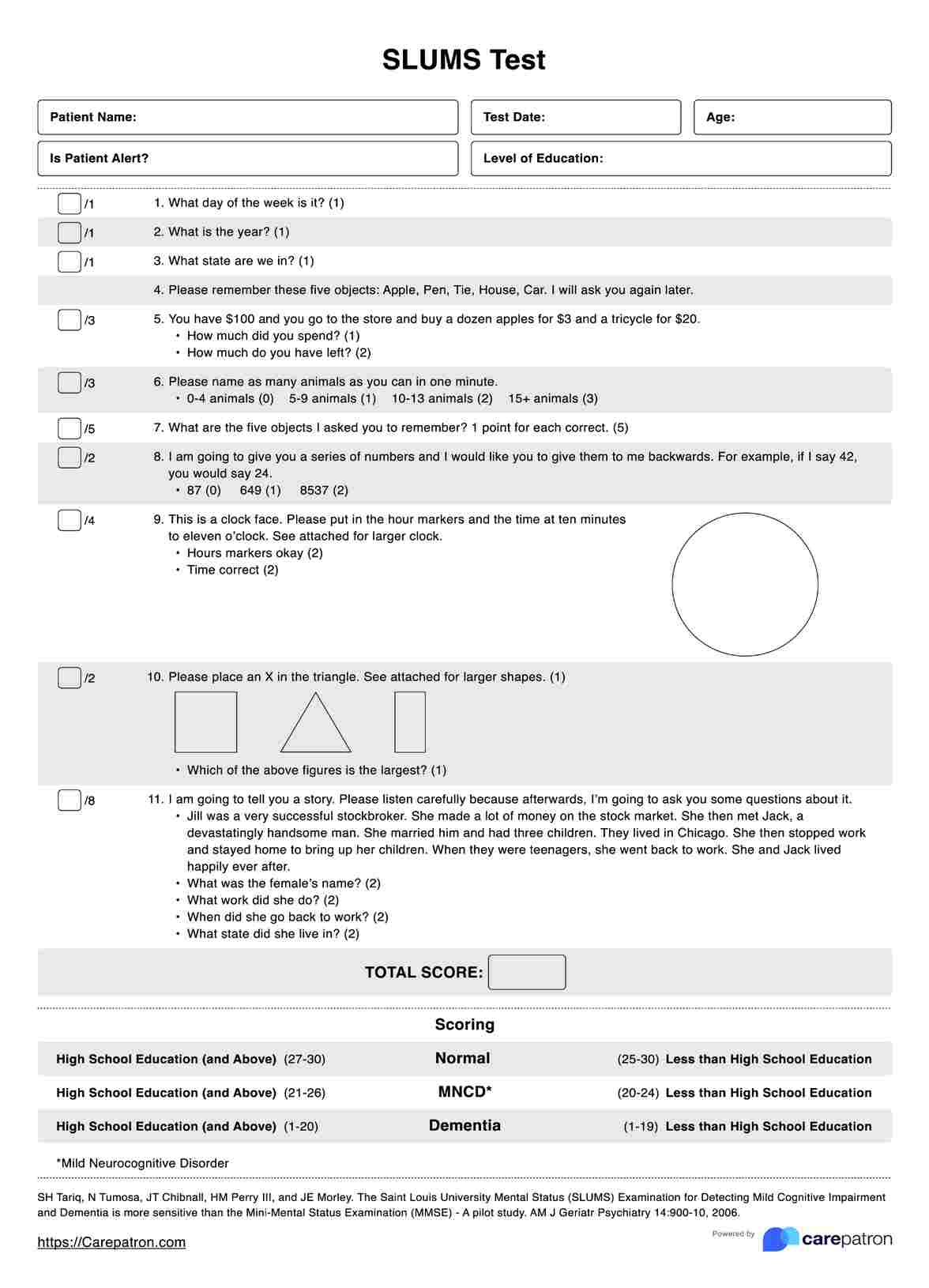The SLUMS Test is a screening test that evaluates several cognitive abilities in functions including memory, attention, orientation, language skills, and spatial recognition.

SLUMS Test
Use the SLUMS Test to check for signs of cognitive decline and/or dementia in patients suspected of having either.
Use Template
SLUMS Test Template
Commonly asked questions
Interpreting the SLUMS score involves comparing the patient’s total score against set thresholds that indicate normal cognitive function, mild neurocognitive disorder, or potential dementia. Score ranges are adjusted based on the patient’s education level.
You can administer the SLUMS Test as often as needed to monitor changes in a patient's cognitive status, especially to track progression or improvement. Please remember to use other tests as well.
EHR and practice management software
Get started for free
*No credit card required
Free
$0/usd
Unlimited clients
Telehealth
1GB of storage
Client portal text
Automated billing and online payments











